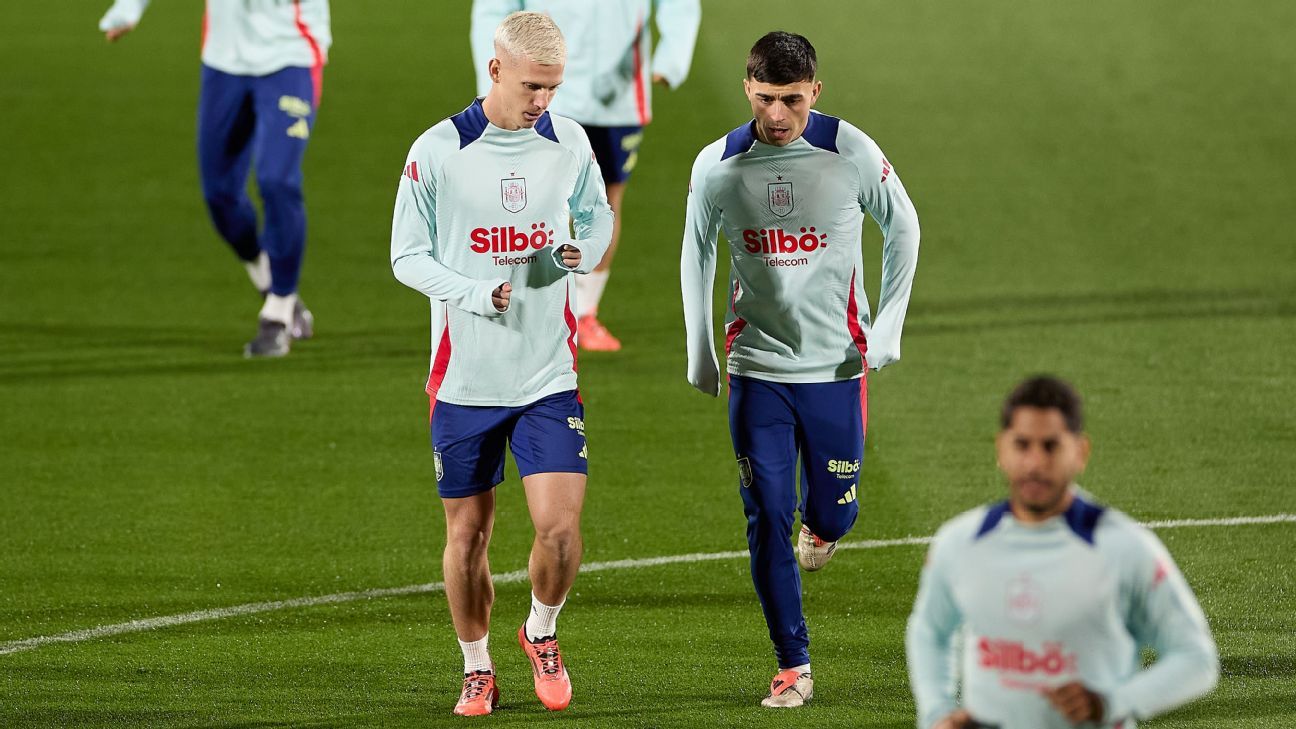Sophie Lawson
Mar 8, 2024, 02:00 PM
The Frauen-Bundesliga (FBL) returns from its international break hiatus this weekend with a blockbuster clash between third-placed Eintracht Frankfurt and table-toppers Bayern Munich, who sit one point ahead of Wolfsburg and 10 clear of Eintracht.
For those familiar with men's football in Germany, it's no surprise to see Bavarian powerhouses Bayern at the top of the league, and in the women's game they and Wolfsburg have occupied the top two spots every season since 2014-15. But before then, seven-time champions FFC Frankfurt (now absorbed into Eintracht) ruled the roost alongside six-time winner Turbine Potsdam (now playing in the second tier). German football's relative success in Europe since the inception of the UEFA Women's Cup in 2001 (which became the UEFA Women's Champions League in 2009-10) was taken for granted.
- Stream on ESPN+: LaLiga, Bundesliga, more (U.S.)
Indeed, the Frauen-Bundesliga has provided one of the finalists for 16 of the 22 European finals to date, including 13 of the first 15. Now Wolfsburg and Bayern have taken over the mantle from independent behemoths like Frankfurt and Potsdam -- albeit amid the recent rise of Lyon and Barcelona -- but this is the first season since the competition began that there is no German representative in the quarterfinals.
This season, two-time UWCL winners Wolfsburg surprisingly fell to Paris FC during Round Two of qualifying; Eintracht overcame Juventus and Sparta Prague in qualifying but could not get past Barcelona or Benfica in Group A; Bayern drew too many games in a thrilling Group C to finish third behind Paris Saint-Germain and Ajax.
There are caveats to each of the three eliminations and in isolation they wouldn't be cause for panic, yet the concern is not that Germany is going backwards but that other parts of the continent have caught up to a league that has played an integral part of the women's football landscape in the modern era.
The lack of Frauen-Bundesliga representation in Europe has likely been felt further after Germany's dismal showing at the 2023 FIFA Women's World Cup last summer, when they failed to get out of the group stage for the first time in their history. There are necessary caveats and context for the trip to Australia & New Zealand, as their early exit came from an untenable coaching situation that saw Martina Voss-Tecklenburg leave her role following the tournament, but a recent downward trend is clear.
Even Germany's participation at the 2024 Olympic Games -- beating Netherlands to the final spot behind hosts France and Nations League winners Spain after winning the third-place playoff -- was only possible thanks to Iceland's shock defeat of group leaders Denmark on the final matchday, as Horst Hrubesch's side were held 0-0 by lowly Wales.
Both domestically and for national team games in Germany, attendances are on the rise. And, like in the English Women's Super League, the practice of moving key FBL games to clubs' main stadiums has drawn notable crowds. Yet while fan numbers tend to increase after major tournaments, the rate of growth, coupled with history of immediate recession -- the 2011 World Cup that Germany hosted is still seen by many as a wasted opportunity that had little long-term impact -- is enough to sound alarm bells.
During a time of record growth in women's football around the world, there is a worry that the Deutscher Fußball-Bund (DFB) is holding the game back in Germany and envious glances have been cast towards the WSL, which is set to break from the English FA next year, and NWSL, which already stands separate from U.S. Soccer.
It's not uncommon to see different teams and leagues pool their ideas and experiences to lift the entire sport, but those within Germany need to be mindful that their own football model [and the 50+1 system] doesn't align with those outside of the country. There are no easy solutions and even if it was as simple as urging the 11 Frauen-Bundesliga clubs aligned with men's teams to increase their investment, the concern would then be what that means for a club like SGS Essen, who are the last independent team still standing in Germany's top flight.
Eintracht Frankfurt CEO Axel Hellmann has pushed for an expanded women's league of 16 teams, maybe even hoping to fast-track the progress of Borussia Dortmund and Schalke who have started from the bottom and are gradually working their way up the pyramid. Yet at a time of fixture congestion, an increase in games may be met with swift pushback.
As with so much in women's football there's a sense of wanting a quick change, or seeing investment reap instant rewards, when it should be remembered that after years of asking for a better TV rights deal and scheduling, the league received just that ahead of this season. Although the $5.6 million deal pales in comparison to the recently announced $240m deal over four years for NWSL, it is a 16-fold increase on the previous one and speaks to gradual change.
Still, just like the clubs who once dominated the Frauen-Bundesliga, it is entirely possible that the German league itself has had its moment in the sun. A lack of Champions League representatives in the knockout rounds and slight decline in competitiveness may just be the phase the league is entering for now. And it could take time to bounce back.
 (1).png)
 10 months ago
19
10 months ago
19













